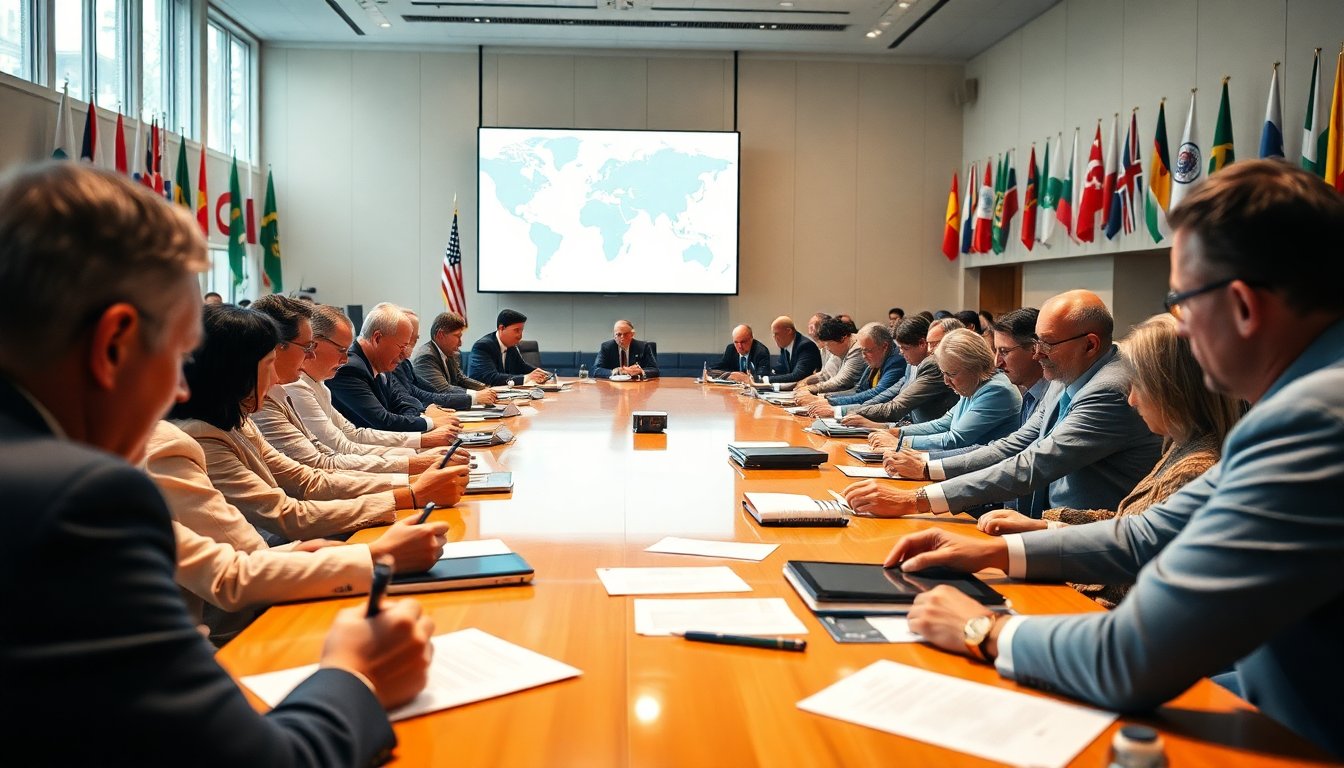Table of Contents
The recent climate negotiations have underscored a fractured global landscape, with nearly 200 nations participating while conspicuously absent was the United States. The discussions, although fruitful in certain areas, have yet again delayed critical decisions that could foster meaningful change.
As the world grapples with the urgent need for climate action, these talks serve as a reflection of the complex dynamics that define international collaboration. Delegates from various countries came together, yet the absence of unified commitment raises questions about the future of climate initiatives.
Progress amidst challenges
Despite the apparent discord, the recent climate conference showcased some significant advancements. Countries presented their Nationally Determined Contributions (NDCs), which are essential for tracking progress towards the goals set by the Paris Agreement. However, as of late 2025, only around 100 nations had unveiled their updated targets, which reflects a slower pace than necessary.
Delegations and representations
The participation numbers were striking, with over 56,000 delegates officially registered, making this conference one of the largest in history. Brazil, the host nation, led with the most substantial delegation, while countries such as China and Nigeria also made notable contributions. However, the absence of the U.S. delegation, a significant player in global climate policy, raised concerns about the effectiveness of the negotiations.
The implications of division
As discussions progressed, it became evident that the lack of consensus poses a significant barrier to achieving ambitious climate goals. While some nations advanced their agendas, the United States opted out of formal participation due to its internal political climate, leaving a void in leadership. This absence has potential ramifications on international efforts to combat climate change.
Challenges of accommodation and costs
On the ground in Belém, where the conference was held, logistical issues arose, particularly concerning accommodation availability. Reports indicated that lodging prices soared steeply, prompting reactions from various countries, including a formal request for solutions from 27 nations. The Brazilian government attempted to mitigate these issues by increasing bed availability through alternative accommodations such as cruise ships.
The juxtaposition of high costs against the backdrop of a global climate crisis highlights the tensions between economic interests and environmental responsibilities. This situation has led to some delegations scaling back their attendance due to financial constraints, further complicating the international dialogue.
Future directions
Looking forward, the global community faces the critical task of fostering unity to tackle climate change effectively. The Tropical Forest Forever Facility, which aims to incentivize forest conservation, represents one of the innovative financial mechanisms introduced during the conference. Such initiatives may pave the way for future collaborations, but they require broad support and engagement from all nations.
As countries work to revitalize their commitments and bridge the divides, the outcomes of these talks will influence the trajectory of international climate policy. The road ahead demands not only renewed dedication but also a willingness to confront the difficult decisions that lie ahead.


